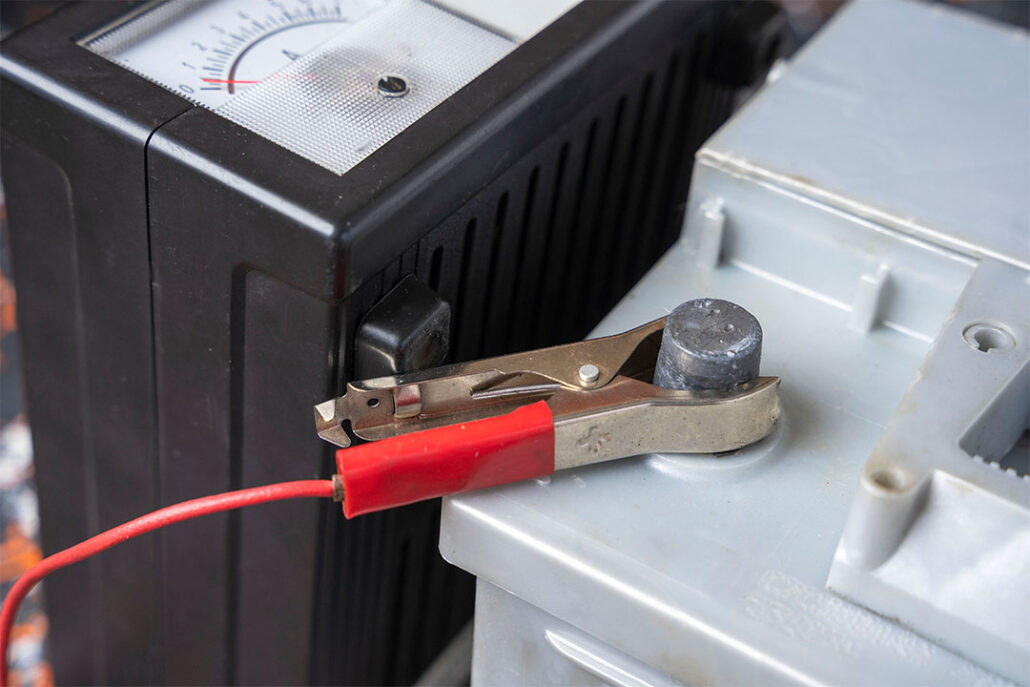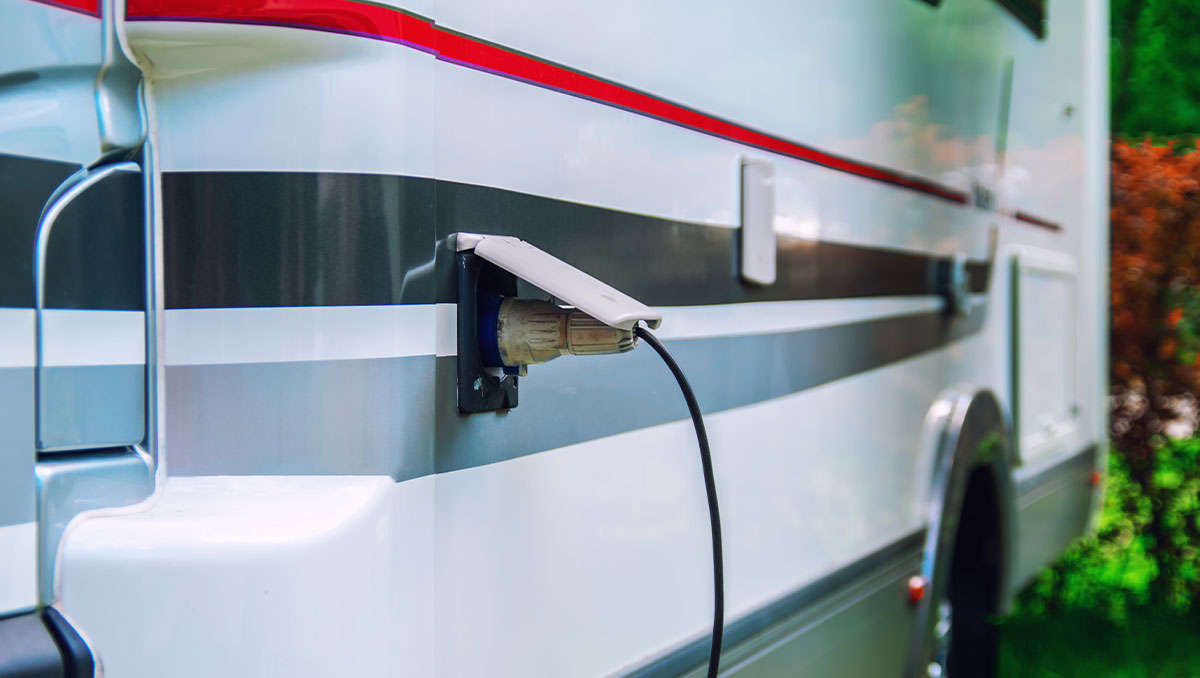If you buy through affiliate links, we may earn commissions, which help support our product reviews.
Last Updated May 26, 2023
Yes, but that will depend on the type of charge controller and inverter system, if any, you are using in your RV.
Your RV batteries, aka, house batteries, should be deep cycle type batteries that should be connected to a quality battery charger.
A good battery charger will keep your batteries charged without over-charging or damaging them. For example, battery chargers have 3 or 4 stages of charging, a bulk charge mode when your batteries are empty, an absorption mode, and a trickle charge mode when the batteries are fully charged.
When plugged into shore power, that will feed into its own fuse panel that provides 110VAC you need for appliances.
When unplugged from shore power, your house batteries go through the inverter to produce the same 110VAC, so your appliances still work.
It is also possible some or all of your RV appliances run directly off of 12 volts. See the best 12v batteries for RVs.
So, keeping your RV plugged in will be charging the battery and should have a trickle charge mode to prevent over-charging.
The battery charger would be connected to the shore power input and would keep the batteries charged as needed. A good charger will also “exercise” the battery, which stops charging and allows the battery to run the load and then the charger turns on and charges the battery again.

You should double-check that your battery charger is “matched” to your battery type. For example, it would treat AGMs differently than standard lead acid battery types or lithium batteries.
If you change your RV battery type, keep in mind to change or adjust the battery charger or swap it out for a charger that is compatible with your new batteries.
Disconnect When Not using the RV
If you are not using the RV for a few weeks or more, some appliances like your RV GPS navigation system and other devices cause a small amount of drain on the battery.
This will cause a shortened life of the battery because they are not meant to be drained below 50%.
Consider, disconnecting the battery cables from the terminals and even bring the battery inside to keep it out of the elements.
Or if you have a quality trickle charger, just leave the RV plugged in and you won’t have shortened battery life issues.
Conclusion
Sure, it is ok to leave your RV plugged in all the time. They are designed for that, but matching the right charger with your batteries is very important.
